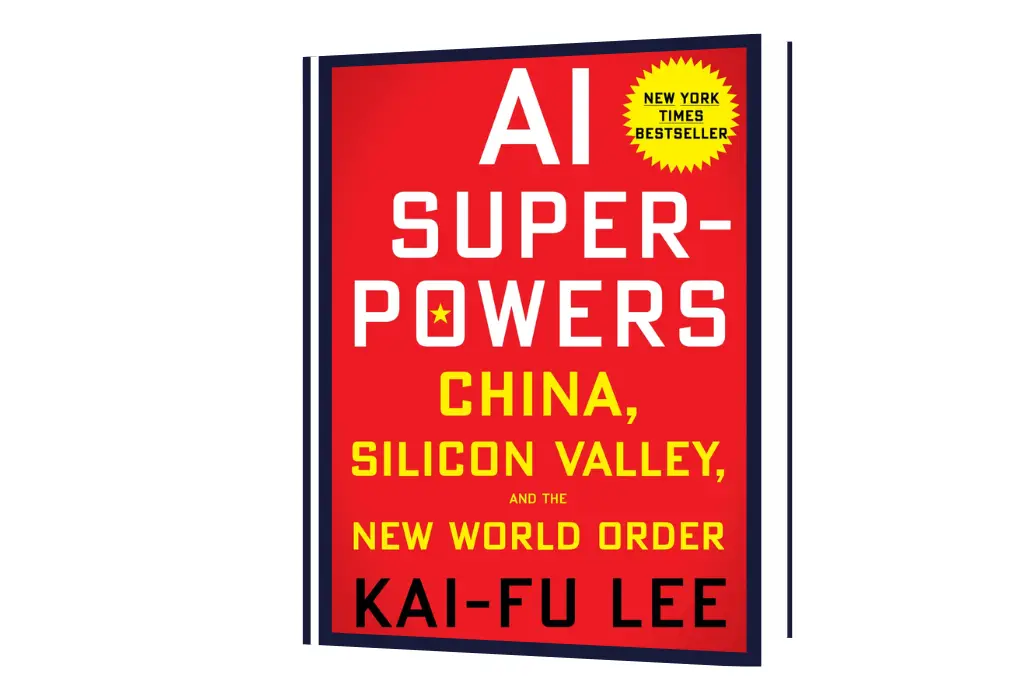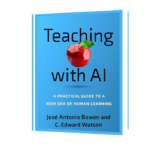Get free PDF below
AI Superpowers: China, Silicon Valley, and the New World Order
Author: Kai-Fu Lee
Published: 2018
Kai-Fu Lee, a leading expert on artificial intelligence (AI), entrepreneur, and former Google China executive, offers a compelling analysis of the global AI landscape, focusing on the rivalry between China and Silicon Valley. He explores how AI is reshaping economies, industries, and societies, and the challenges and opportunities this transformation presents for humanity.
1. The Age of Artificial Intelligence
Lee begins by describing the rapid evolution of AI and its transformative potential. He divides AI into four waves:
- Internet AI: Algorithms powered by vast user data to deliver personalized recommendations (e.g., Google, Facebook, TikTok).
- Business AI: Companies optimizing operations with data analytics (e.g., fraud detection, customer service automation).
- Perception AI: Machines interpreting the physical world via sensors, cameras, and microphones (e.g., facial recognition, autonomous vehicles).
- Autonomous AI: Systems making independent decisions without human input (e.g., robotics, autonomous drones).
Each wave builds on the last, creating a cascade of advancements that will profoundly disrupt industries, from retail and healthcare to education and transportation. Lee stresses that these developments will lead to productivity gains but also economic upheaval, especially in labor markets.
2. The US vs. China: A Tale of Two AI Giants
The heart of the book lies in Lee’s analysis of the AI competition between the United States and China. Both nations have unique strengths that position them as global leaders in the AI race:
Silicon Valley’s Edge
- Innovation Culture: Silicon Valley thrives on innovation, fostering creativity and risk-taking.
- Cutting-Edge Research: The U.S. leads in foundational AI research, with top universities (e.g., MIT, Stanford) and tech companies (e.g., Google, Amazon, Microsoft) pushing the boundaries.
- Venture Capital: A robust ecosystem of venture capital funding supports startups, driving rapid commercialization of AI technologies.
China’s Edge
- Data Abundance: With over a billion internet users, China generates massive amounts of data—the lifeblood of AI systems.
- Entrepreneurial Spirit: China’s “996” work culture (9 a.m. to 9 p.m., six days a week) fuels a relentless pace of innovation.
- Government Support: The Chinese government prioritizes AI, offering subsidies, infrastructure, and strategic plans to dominate the industry.
- Rapid Iteration: Chinese companies excel in applying existing AI technologies to real-world problems, often outpacing their Western counterparts in speed and scale.
Lee highlights China’s “copycat” reputation, noting that while it began by mimicking Silicon Valley, it has evolved into a powerhouse of original innovation. Companies like Baidu, Tencent, Alibaba, and ByteDance demonstrate China’s ability to scale and adapt AI technologies rapidly.
3. The Impact on Jobs and the Economy
Lee delves into the socioeconomic implications of AI, predicting significant job displacement across industries. He divides jobs into four categories based on their susceptibility to automation:
- Jobs AI Can Easily Replace: Routine and repetitive tasks (e.g., assembly-line work, data entry).
- Jobs AI Will Augment: Roles requiring human creativity, emotional intelligence, or strategic thinking (e.g., teachers, healthcare providers).
- Jobs AI Will Create: New opportunities in AI development, maintenance, and regulation.
- Jobs AI Cannot Replace: Fields emphasizing uniquely human traits like empathy and interpersonal connections.
Lee warns of rising income inequality as automation concentrates wealth in the hands of a few. He calls for proactive measures, such as reskilling workers, universal basic income, and policies to ensure equitable distribution of AI’s benefits.
4. The Human Side of AI
A key theme in AI Superpowers is Lee’s belief that while AI can optimize processes, it cannot replicate human emotions, empathy, or creativity. He draws on his personal experiences, including a battle with cancer, to emphasize the importance of human connections.
Lee argues that societies must prioritize cultivating empathy and care, especially in industries like healthcare and education. He envisions a future where AI handles technical tasks, freeing humans to focus on roles that require emotional intelligence and compassion.
5. Recommendations for a New World Order
To navigate the challenges and opportunities presented by AI, Lee offers several policy and ethical recommendations:
- Fostering Collaboration: The U.S. and China should work together to address global challenges like climate change, disease prevention, and poverty alleviation, leveraging AI as a tool for collective progress.
- Ethical AI Development: Governments and corporations must establish guidelines to ensure AI systems are transparent, unbiased, and accountable.
- Education Reform: Education systems should adapt to the AI era, emphasizing creativity, problem-solving, and emotional intelligence over rote memorization.
- Safety Nets for Workers: Policymakers should implement programs to support displaced workers, including retraining initiatives and social welfare systems.
6. A Call to Action
Lee concludes with a call to action, urging readers to approach the AI revolution with a sense of responsibility and urgency. He emphasizes that while AI has the potential to amplify human capabilities, it also poses existential risks if left unchecked.
His ultimate message is one of balance: harnessing AI’s power for economic growth while ensuring it serves the greater good.
Key Takeaways
- AI is transformative: It will reshape industries, economies, and societies.
- China and the U.S. are leaders: Each has unique advantages in the AI race.
- Job displacement is inevitable: Proactive measures are essential to mitigate its effects.
- Human values matter: Empathy, care, and creativity will remain irreplaceable.
- Global collaboration is critical: Addressing AI’s challenges requires cooperation across nations.
Conclusion
AI Superpowers is a thought-provoking exploration of the AI revolution, offering insights into its technological, economic, and ethical dimensions. Lee’s unique perspective, rooted in his experiences in both Silicon Valley and China, provides a nuanced understanding of the opportunities and challenges ahead.
The book is both a wake-up call and a guide, encouraging readers to prepare for a future shaped by AI while staying true to what makes us human.







